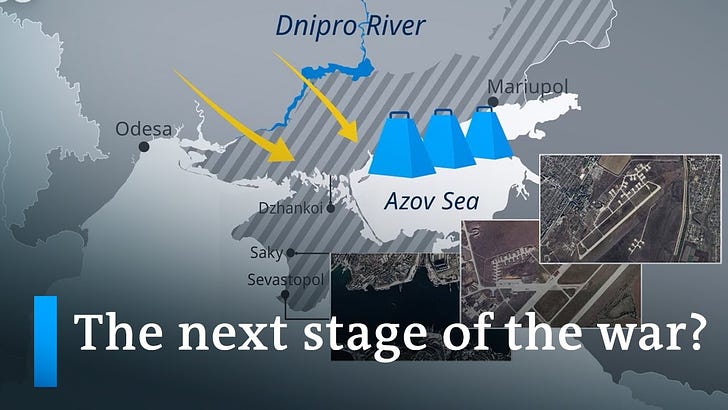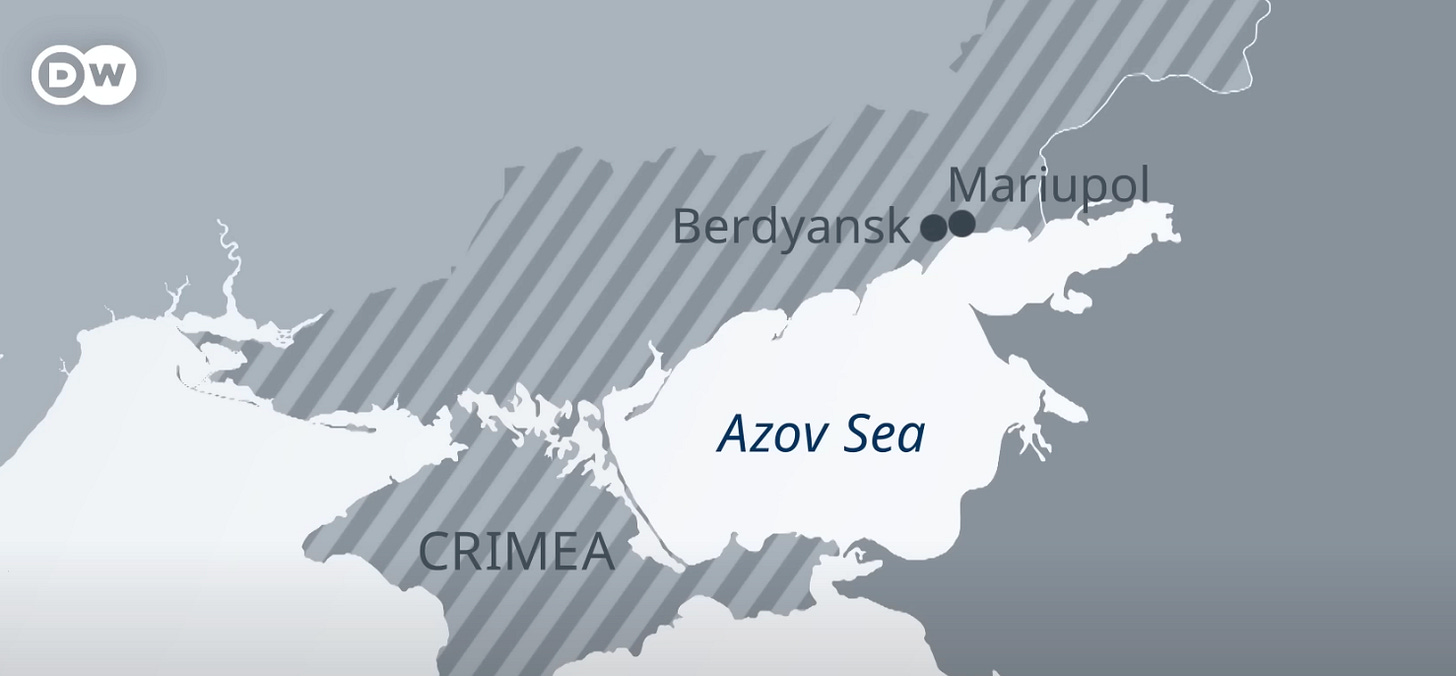What Will Ukraine's Offensive Look Like?
Ukraine can and must win the war, says former Army commander Ben Hodges
Ukraine is short of ammunition, Russia continues its brutal assault on Bakhmut and leaked documents show that some US officials doubt a Ukrainian offense can succeed. Is the war stalemated?
Ukraine can and must win the war, says Lt. General Ben Hodges (ret.), the former commander of the U.S. Army in Europe. In a 20-minute interview with Germany’s DW News April 21 he offered a perspective on the stunning failures of the Russian army.
The war has been going on since 2014, when Russia illegally seized Crimea and parts of the Donbas region, he says. Yet, today, Russia still only controls about 15 percent of Ukraine. “Nine months in Bakhmut, they still haven’t captured it with all their advantages. They still don’t have air superiority. They haven’t figures out a coherent command structure. The Black Sea fleet does nothing except shoot missiles against fixed targets, apartment buildings.”
It is sobering to realize, as Hodges points out, that for all of Russia’s military superiority they have not been able to cut off Ukraine’s supply lines. “The Russians have not been able to destroy one single train or convoy bringing equipment and ammunition from Poland. How is that? In 14 months, they couldn’t. They don’t have the ability to destroy one train.”
What they can do is bombard cities and towns on the front lines with artillery and launch human wave assaults, but that has not won them much ground. “The only advantage that they have is they’re willing to expend tens of thousands of lives pushing them into a meat grinder. That’s not sustainable.”
Hodges has won a large following with his insights into the war. Contrary to those who fear that Ukraine’s efforts to liberate Crimea will either fail or that Russian President Vladimir Putin will use nuclear weapons to defeat the offensive, Hodges argues that Crimea is the decisive battle that will win the war.
Ukraine will never be safe and secure as long as Russia occupies Crimea. They will always be able to launch the next attack, whether it’s in two, three, four years. So any negotiation that leaves Russia in control of Crimea — automatically Russia has a huge advantage…So from a security standpoint, they have to get Crimea.
From an economic standpoint, Ukraine’s economy is based on exporting grains, on rare earth materials. So even if Berdyansk and Mariupol, the two big ports on the Azov Sea, were liberated or the Russians gave them back as part of negotiations, the Ukrainians would never be able to do anything with it because Crimea still blocks access in and out of the Azov Sea…That’s why the idea that somehow this would be an acceptable outcome for Ukraine, I think, is ludicrous.
Hodges believes (as I do) that it is highly unlikely Putin would use a nuclear weapon. Putin’s threats are meant to deter us but do not offer him a practical tool for winning the war. (For more, see my analysis from March.)
What Ukraine needs now is for Western leaders, including President Joe Biden, to say clearly “we want Ukraine to win.” So far, these leaders have not defined their preferred strategic outcome. “We’ve said we’re with your for as long as it takes, which is an absolutely meaningless statement,” says Hodges, “Or that we want Russia to lose — and then you’ll hear somebody say, well, they’ve already strategically lost. But none of that helps Ukraine.”
Hodges pushes for a clear statement of victory, backed up by supplying the long-range weapons, like ATACMs, that can help Ukraine liberate Crimea. Even without these arms, when Ukraine gets the weapons now in the pipeline and conditions are right this spring or summer, we can expect to see Ukraine launch a determined offensive. Their defense of Bakhmut has helped buy time for Ukraine to assemble and train their offensive forces, says Hodges. He fully expects this offensive to focus on Crimea.
“You could kill every Russian soldier within 200km of Bakhmut and it would not change the strategic situation. But you liberate Crimea - that changes everything.
Like other military observers, Hodges anticipates a combined arms assault of tanks, armored vehicles, artillery, infantry and mine-clearing engineers. It is difficult to predict exactly where the attack will focus, but it is likely that Ukraine will probe for areas of weakness and then move in attack columns 10 or 20 kilometers wide to drive to the Azov Sea and break the Russian land bridge to Crimea. They will try to isolate Crimea, then make it untenable for Russia to hold it.
Others, such as Hodges predecessor as Commanding General of U.S. Army Europe Mark Hertling, agree that Ukraine can win the war and force Russia out of all its territories, but we cannot know for certain until the offensive begins. In the meantime, “Don’t be confused by a few loudmouths that you hear on the far right,” says Hodges, “The U.S. Congress, in a bipartisan way, will continue to support this…And it could all end this year, if the U.S. president would say we want Ukraine to win.”
And provide the weapons needed to finish the job.






